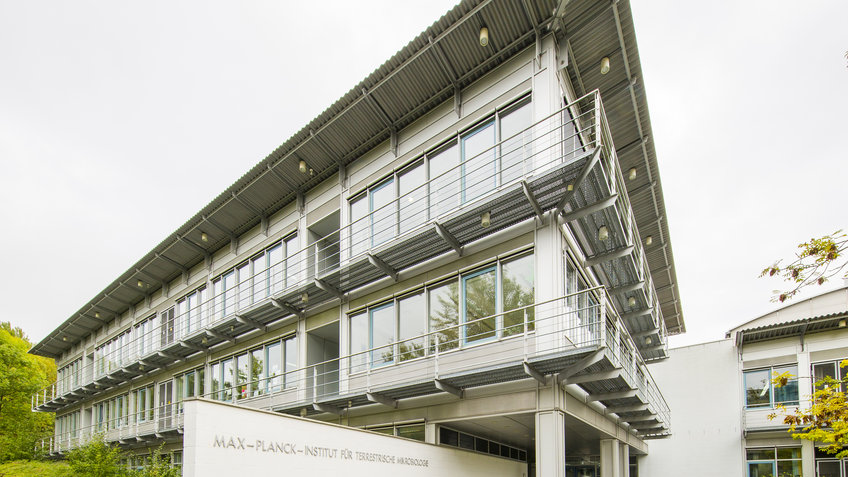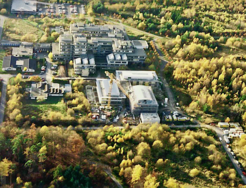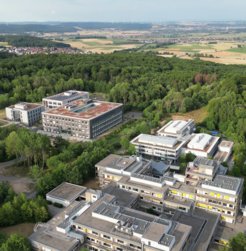
A Brief History of MPI-TM
The Max Planck Institute for Terrestrial Microbiology was founded in 1991 by Rudolf K. Thauer, Professor of Microbiology at the Philipps University of Marburg (UMR). From its beginnings with originally three departments and a department-independent junior research group, the MPI has developed over the past three decades into a multidisciplinary and world-renowned research institution with a rich history of scientific achievements.

The first two departments, "Biochemistry" (Rolf Thauer) and "Biogeochemistry" (Ralf Conrad), were already dedicated to the study of the biochemistry and ecology of greenhouse gas transforming microbes and their climate-relevant activities. In 2000, the third department "Organismic Interactions" (Regine Kahmann) was established, followed by the department "Ecophysiology" (Lotte Søgaard-Andersen) in 2004.
An important milestone in 2010 was the establishment of the joint Center for Synthetic Microbiology (SYNMIKRO) by the Max Planck Society and the UMR as part of the Excellence Program of the State of Hesse. This enabled the permanent establishment of another department, "Synthetic and Systems Microbiology" (Victor Sourjik) and the introduction of the special fields of Synthetic and Quantitative Biology.

In 2017, the department "Biochemistry & Synthetic Metabolism" (Tobias Erb) and in 2020 the department "Natural Products in Organismic Interactions" (Helge Bode) were established, replacing the departments "Biogeochemistry" and "Organismic Interactions" respectively, so that the institute now consists of four departments. In addition, the MPT-TM is home to a large number of department independent and department funded research groups as well as two Max Planck Fellows.
Another milestone followed in 2021: the Early Career Research Center "Microcosm Earth". The "Microcosm Earth" center is operated jointly with the UMR and funded by the MPG and special funds from the state of Hesse. It comprises three research groups from the MPI-TM and the UMR and also supports independent PhD and postdoc projects.
In 2021, the MPI Marburg celebrated its 30th anniversary together with numerous colleagues, cooperation partners and friends.

